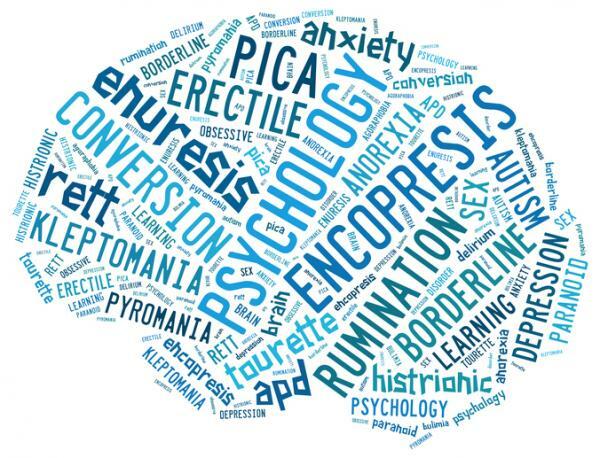
If you have a mental health problem that interferes with your life, you may consider seeking professional help. Buthow to know if I need to go to the psychologist or psychiatrist? It is common to find people who do not differentiate between one professional or another.
These confusions or doubts may be due to the fact that there are some similarities, but also important differences that are what mark the situations in which to go to one specialist and not to the other, such as their training, as well as the treatment provided by each of them, which depends to some extent on that training. In this Psychology-Online article, we tell you the differences between a psychologist and a psychiatrist so that you know which one you should go to based on your symptoms and what you are looking for.
Many people confuse the two professionals. This may be because both are focused on the person's emotions, feelings, and thoughts. In addition, both can treat mental illnesses with psychological treatment. However, psychiatrists study medicine before specializing in psychiatry, and for this reason they usually work in a more biologicist framework that relates mental and physical problems (although it must be borne in mind that there are different schools within psychiatry and the focus varies from one to other).
Differences between psychologist and psychiatrist
The main differences are:
- Psychiatrists are doctors while psychologists don't
- Psychiatrists prescribe medication while psychologists do not
- Psychiatrists tend to treat serious mental illnesses while psychologists tend to treat them to a milder degree
Differences in treatment
Psychiatrists can provide different types of treatment:
- Medication
- Review of general health, including physical health and the effects of medication
- Brain stimulation therapies
- May perform psychotherapy (depends on approach)
Psychologists provide psychological treatments (psychotherapy).
Differences in terms of treated conditions
Psychiatrists often treat people with medical, psychological, and social needs. Some of these conditions are:
- Severe depression
- Schizophrenia
- Bipolar disorder
- People who have attempted suicide or have a suicidal psychological profile They are usually seen by a psychiatrist and, later, they can be worked together with the psychologist.
Psychologists often treat people with milder problems that can be treated effectively through psychotherapy, such as behavioral problems, learning difficulties, depression or anxiety.
Joint work
Sometimes psychiatrists and psychologists work together and multidisciplinary. The psychiatrist can perform an initial evaluation and later refer to the psychologist to start psychotherapy simultaneously with psychopharmacological treatment).

It is frequent that in life there are bad and good times that we go through and overcome within normality. But there are some challenges that overwhelm us and that make it impossible to think that it is possible to get ahead, from the death of a being loved to very high levels of anxiety, the important thing is to know that there are resources to overcome these phases of life, such as psychologist. Some of the reasons or moments in which you go to a psychologist are:
Duel
Death is something inevitable in life, but this does not mean that it is hard to overcome it. Each of us faces the death of a loved one. Bereavement whether open or private is common and necessary to deal with these situations, but when it persists for a long time time and interferes in our daily activity, we need help and the psychologist can provide us with appropriate strategies in order to overcome pathological grief.
Stress and anxiety
Some facets of life are stressful and many situations, from a job interview to relationship problems, can cause anxiety. Stress and anxiety, if left, can lead to social isolation, depression, and many other problems. The psychologist can help you manage stress and anxiety finding the cause of your problems and finding appropriate ways to overcome them.
Depression
Feelings of hopelessness and helplessness are common signs of depression. While some believe that depression can be overcome without difficulty, in many cases this is not the case. Depression is a common disorder in which people lose interest in things, experience fatigue, and often have trouble controlling their emotions.
Psychologist or psychiatrist for depression?
Psychologists can help find the cause of depression in the first place and make life changes that are often the first step to feeling better.
Phobias
Having a fear of heights or spiders are common phobias, but some unusual and irrational fears can create substantial problems in your life. For example, sitophobia (fear of eating) can cause serious health problems.
An experienced psychologist can help you overcome your fears so that you can live without polyphobia (fear of many things) or phobophobia (fear of fear).
Family problems
Relationships, whether family, personal or work, have their ups and downs. While relationships can be some of the best things in life, they can also be a source of stress and trouble.
Working with a psychologist, either individually or in a group, can help bridge the cracks that can form even in the strongest relationships.
Unhealthy habits and addictions
Some unhealthy habits, such as tobacco, alcohol, or drug use are used as a way to escape from problems.
In addition to addiction to these substances, psychologists can treat:
- Eating disorders
- Sleep problems
Mental disorders
Some symptoms are caused by bigger problems. Mental disorders can manifest in different ways, they can be disguised as other things, and sometimes they can only be discovered by a mental health professional. The person may come to treat a problem and eventually discover that it is indeed a specific symptom of a disorder.
Some of the mental disorders that can present very varied symptoms are:
- Bipolar disorder
- Major depressive disorder
- Schizophrenia
- Posttraumatic stress

As we mentioned earlier, the psychiatrists would take care of the diagnosis of mental disorders considered serious and they would be in charge of evaluating the physical aspects of psychological problems (it must be taken into account that it depends on the school to which the psychiatrist belongs).
People often seek the help of a psychiatrist for a variety of reasons. Problems can happen suddenly, such as a panic attack, hallucinations, suicidal thoughts, or hearing voices. But they can also be long-term problems like feelings of sadness, hopelessness, or anxiety that never seems to go away and that interferes with normal daytime functioning a day.
A person can go to the psychiatrist:
- When you need a psychotropic to treat your problem
- When improvements are not noticed with the prescribed psychotropic drugs (Medication adjustment)
- If they are experimenting side effects complex
If the question of "¿how to know if I need to go to the psychologist or psychiatrist? "You may have to go to a health center so they can advise you and evaluate your demands.
This article is merely informative, in Psychology-Online we do not have the power to make a diagnosis or recommend a treatment. We invite you to go to a psychologist to treat your particular case.


